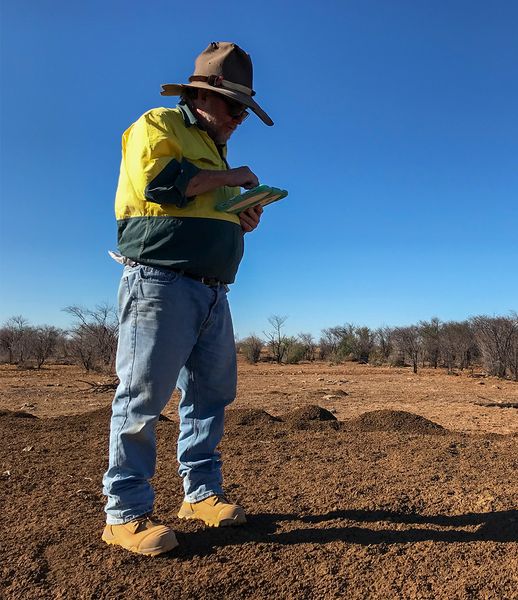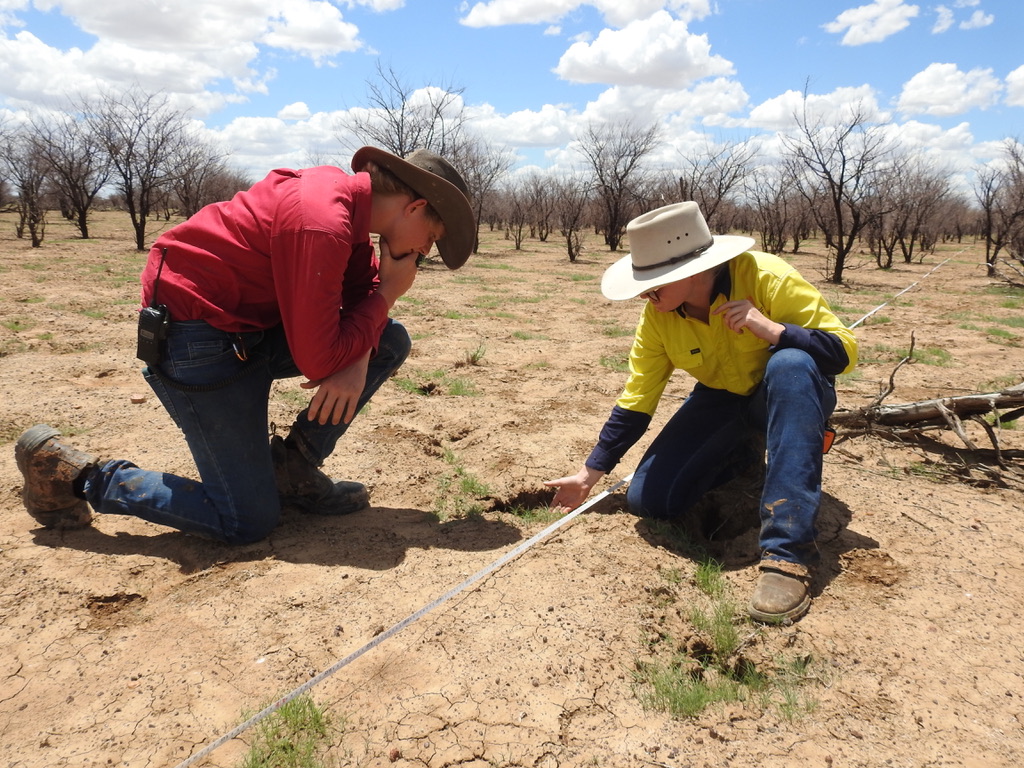THE TECH SAVY DESERT RAT
“Give a man an iPad and you amuse him for a day. Teach a man to use an iPad and you give him work for a lifetime” – ancient DCQ proverb.
DCQ Field Supervisor, Peter Spence, is one of those blokes who decided to keep up with the ‘modern technology’.
Spending most of his life in the Desert Uplands, north of Muttaburra, it’s only in the last ten years that Pete has really had the opportunity to cover the whole of the region as part of the DCQ team.
He, like all our staff, possesses a broad set of skills that is combined with practical science and applied across a range of projects.
Team out, data in
Pete’s time is spent liaising with our landholders and coordinating the work of the field team but also, crucially, he is part of the team of people who measure the outcome of the projects we do, which provides the learnings we apply.
iPads are not just toys for us. They’ve become critical tools in recording our data and helping us to refine our mapping.
Now that this region has received some rain, landholders are reporting that their native pasture is finally poking its head up.
As the creeks subside and property roads are graded, DCQ staff are heading out to key sites to measure the recovery, learn from our research and development work, and look for emergent weeds.
As Peter and the team are out, data from our work sites is coming in as we help you invest in the natural resources of the Desert Channels region.


